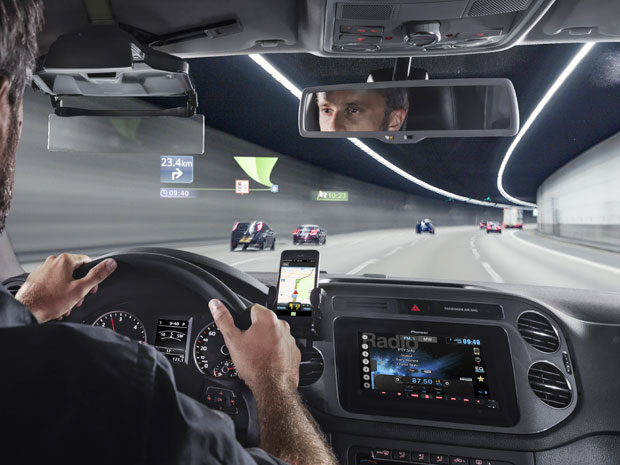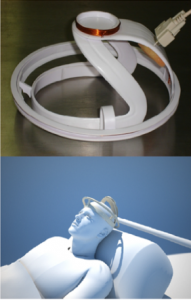 Heads Up Displays (HUDs), once the domain of fighter pilots and luxury car drivers, now come in a clip-on variety affordable to a much wider market. The systems project information on to a see-through screen to help keep their users’ attention outside the vehicle. But until now, such clarity of mind never came cheap: BMW charges over US $1000 for its built-in HUD system.
Heads Up Displays (HUDs), once the domain of fighter pilots and luxury car drivers, now come in a clip-on variety affordable to a much wider market. The systems project information on to a see-through screen to help keep their users’ attention outside the vehicle. But until now, such clarity of mind never came cheap: BMW charges over US $1000 for its built-in HUD system.
At this week’s Frankfurt Motor Show in Germany, several cheaper alternatives were on offer. Car accessory maker Pioneer showed off its NavGate HUD, which it will sell in Europe starting in October. The HUD uses Texas Instruments’ DLP projector instead of the more expensive laser found in a Japanese-market predecessor. That move shaves a few hundred dollars off its cost, but it still comes through at €699, or $927. Navigation system maker Garmin last month announced a dashboard-mounted HUD display for $150.
Unlike built-in HUDs systems, these after-market versions require drivers to provide a smartphone and to download separate applications (an additional $50 in Garmin’s case). But the ubiquity of smartphones is helping accessory makers to nip at the heels of car manufacturers in yet another product range. And for the DIYers, there’s always Lifehacker.
Read the rest of this blog post at IEEE Spectrum’s Tech Talk: [html] [pdf]


